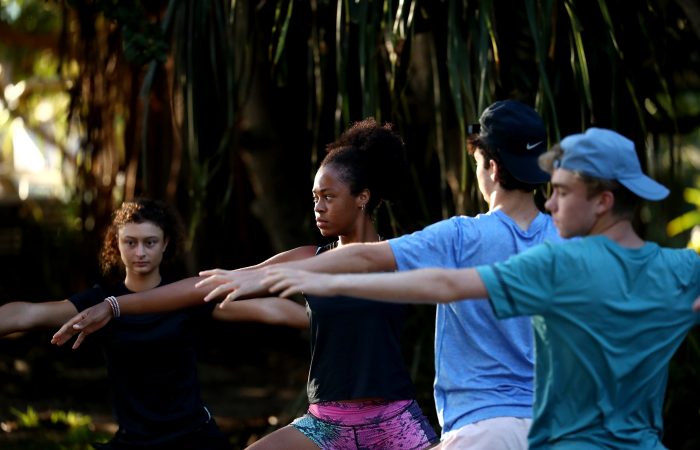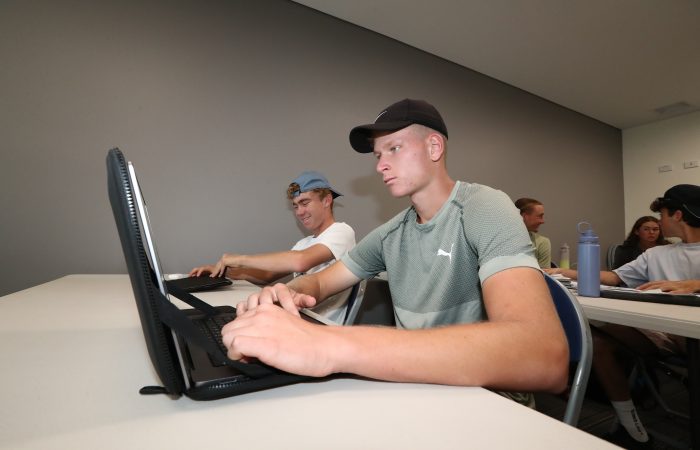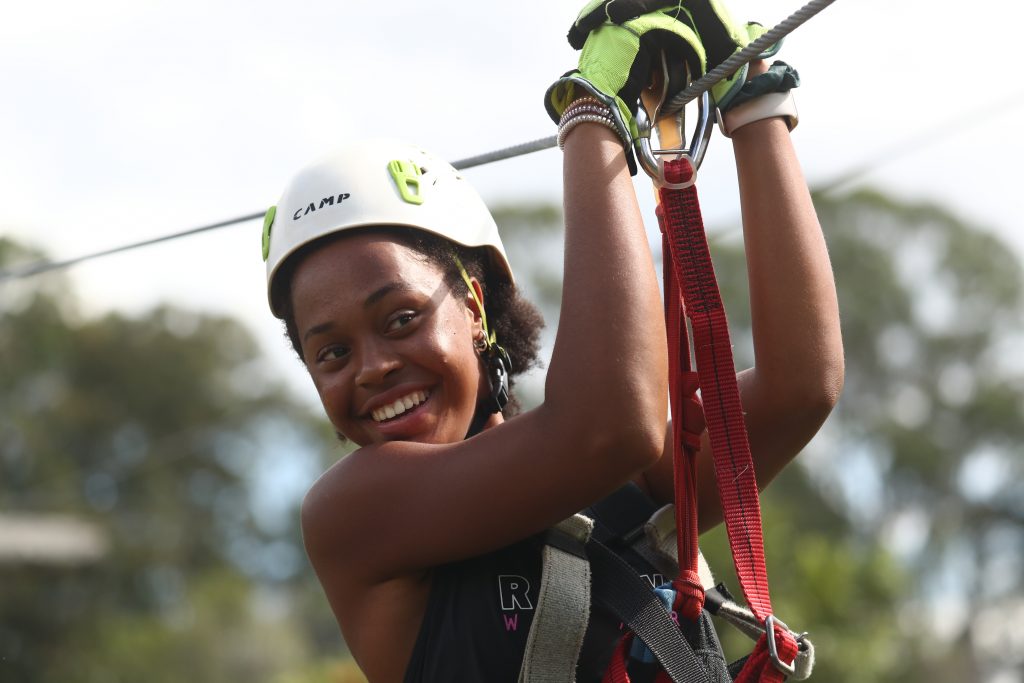Holistic development focus at Tennis Australia’s National Tennis Academy
The rising stars of Australian tennis are honing their skills, both on and off the court, through Tennis Australia’s National Tennis Academy.
Sunshine Coast, Australia, 26 July 2023 | Leigh Rogers

From scaling a high-ropes course to beachside yoga sessions, the importance of holistic development was evident at the National Tennis Academy’s annual connection camp.
Tennis Australia’s National Wellbeing Manager Ben Robertson led the three-day camp, which was held on the Sunshine Coast earlier this year and incorporated daily themes of decompression, regulation and regeneration.
“The idea is to help the athletes self-regulate and give them some skills and strategies away from tennis, which they can then use on the court,” Robertson explained.
“We also wanted to take them out of their comfort zone and encourage them to learn in different environments.”
The National Tennis Academy, based at the Queensland Tennis Centre in Brisbane, is the pinnacle in Tennis Australia’s talent pathway. An invitation is reserved only for the nation’s most promising players aged 23 and under.
The academy’s class of 2023 consists of 27 athletes, which includes reigning Australian Open doubles champion Rinky Hijikata.
“We have developed a talent pathway that provides young athletes with the opportunity to become independent and resilient tennis professionals, with a broad set of skills and capabilities,” Chris Mahony, Head of the National Tennis Academy, explained.
“Through the academy, we are delivering a holistic athlete development program which gives each player the opportunity to maximise their potential.
“We have both residential and home-based programs available, and work closely with the athletes, their private coaches and their families to ensure they have access to the best support network possible.”
The world-class program is supported by 11 coaches, along with a team of experts in physical performance, sports psychology, nutrition, performance analysis and wellbeing.
A personalised distance education program for school-aged players is another key pillar.
“When we look at the entire program, there are so many elements that we have to fit schooling around,” Renae Woods, the academy’s Dean of Students, said.
“It’s really challenging for the students, especially those in year 11 and 12 who still have to meet every single curriculum outcome and deadline.
“Maintaining their motivation when they are preparing for a tournament, or while on tour in a country where the internet connection might not be reliable, adds to the challenge.”

National Tennis Academy athletes, such as Hayden Jones and Pavle Marinkov, combine studying with their training commitments. Picture: Tennis Australia
Yet for these determined athletes, the opportunities provided at the academy are greatly appreciated.
Pavle Marinkov, who won the 18-and-under Australian Championships boys’ singles title in December, is thriving in these conditions.
“To be around the best players in the country it’s a great environment, with great facilities and great coaches as well,” said the 17-year-old from Sydney, who is now based in Brisbane.
Marinkov, who made the third round in the Australian Open 2023 boys’ singles competition, was among nine junior academy athletes who attended the inaugural connection camp.
As well as on-court practice and designated classroom time during the camp, these promising athletes took part in running and mindfulness sessions at the picturesque Mount Coolum, as well as surfing lessons in Noosa.
Nicole Kriz, Tennis Australia’s National Lead – Tours, Camps, College and Wellbeing, explained the activities were carefully selected to deliver maximum learning opportunities.
“The high ropes, for example, were high stress,” Kriz explained.
“The idea is by conquering their fears, the athletes can learn from this and apply the same coping strategies when facing stress on court.”

Lily Taylor during the high-ropes course at the National Tennis Academy wellbeing camp. Picture: Tennis Australia
The high-ropes course proved a highlight for many of the athletes, including 16-year-old Lily Taylor.
“The high ropes gave everyone an adrenaline rush and was a real test of strength,” she related.
While 14-year-old Tahlia Kokkinis, one of the youngest academy athletes, found the nerve-wracking experience provided a valuable lesson.
“I was so nervous, but I’m proud of myself that I managed to do it,” Kokkinis said. “Mindset really is everything. I’ll definitely remember this when I’m next under pressure on court.”
This article appears in the June-July edition of Australian Tennis Magazine.
Book online, play today: Visit play.tennis.com.au to get out on court and have some fun!